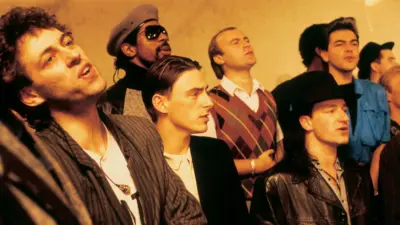We've updated our Privacy and Cookies Policy
We've made some important changes to our Privacy and Cookies Policy and we want you to know what this means for you and your data.
Smart baby-trackers mostly unnecessary, say US doctors
Image source, Getty Images
Top Stories
- Author, Zoe Kleinman
- Role, Technology reporter, ҙуПуҙ«ГҪ News
A group of paediatricians has called for smart health-trackers, designed to monitor babies while they sleep, to be regulated by the same US body that oversees other medical equipment.
The monitors, which often take the form of sensors fitted to clothing or nappies, measure signs such as heart rate and breathing during sleep.
The data is shared with a phone app.
The doctors spoke out after seeing babies being brought to A&E after smart-monitor false alarms.
Top Stories
The team from the Children's Hospital in Philadelphia said the devices should be approved by the US Food and Drug Administration (FDA).
One brand they mentioned was Owlet, which sells a $250 (ВЈ199) monitor that tracks sleeping babies' heart rates and oxygen levels via a sensor concealed inside his or her sock.
It
"For most healthy babies there is not a role for home monitoring at all," said neonatologist Dr Elizabeth Foglia, one of the authors of (subscription).
"All the data we have so far suggests monitoring healthy infants at home has not been shown to reduce the risk of Sids [Sudden Infant Death Syndrome].
"There are few classes of babies for whom it would be appropriate to go home with a medical monitor - and a physician would prescribe that monitor."
While the makers of the devices are very clear that they cannot prevent Sids (also known as cot death), they say the devices monitor a number of warning signs.
Top Stories
Image source, Owlet
Dr Foglia, Dr Christopher Bonafide and Dr David Jamison wrote that they were concerned that the publicly available devices, while intended to alleviate parental anxiety, could end up causing more distress.
"By continuously monitoring healthy infants, parents will inevitably experience some alarms for conditions that are not life-threatening, including false-positive alarms... and true-positive alarms for events that are not clinically important," they said.
"Healthy infants have occasional oxygen de-saturations to less than 80% without consequence, and these monitors could increase the risk of over-diagnosis and potential harm if these innocuous events generate alarms."
The devices have proved popular with parents.
'Low-hanging fruit'
"It is unsurprising that new parents are seduced into buying new gadgets for their babies and as technology evolves there is a growing array of monitoring products," said Ben Wood, analyst at CCS Insight.
"New parents are low-hanging fruit for gadget-makers because they want to give their babies the best start in life.
"The problem is that in the age of the 'worried well' such products can end up leading to false alarms that can alarm parents and place even more pressure on already stretched health services."
Top Stories
More to explore
Most read
Content is not available








